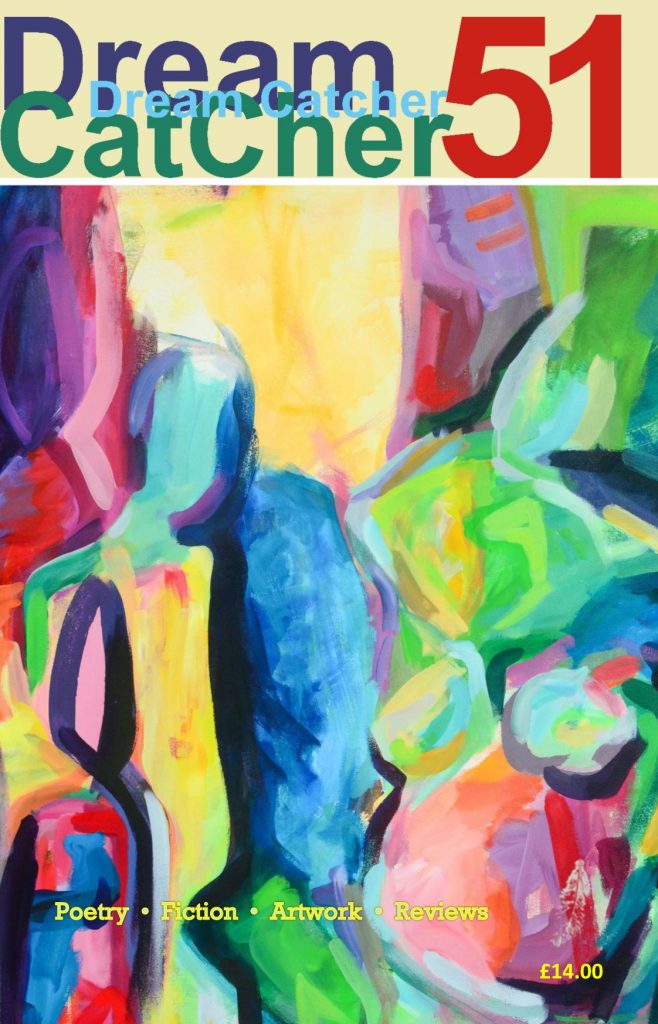The theme for this issue seems to be ‘continuity and change.’ This polarity crops up regularly in ruminations about our national and global plight – and seemed to preoccupy contributors to this issue of Dream Catcher. Who knows what changes we will also face, as we launch into issue 51, 52, 53 …? By way of continuity, the ‘conversation with’ features again a fine poet who has many strings to his bow, Ralph Dartford.
A record number of poems in DC 51 seem to be ‘after’ (not in the sense of chronology, but infused or prompted by some other work – We blame Napowrimo). To quote Billy Collins, ‘the trouble with poetry’ is ‘that it encourages the writing of more poetry.’ Other writers, works of art, historical and life events have all inspired the contributions included here. Only in DC 51 will you meet drunks slumped on a bench in New York, an Obijwe hunter, the drowned sailors of a fishing boat, join in a conversation with a pillar holding up a motorway bridge, learn how to live among the dead, admire renaissance painting and engage with a fifteen century Scottish maker.
Since antiquity, writers have riffed on how to make art which is new but also engages with subjects and experiences of perennial interest. Can we find fresh ways to express the eternal? Heraclitus claimed that no man ever steps in the same river twice, for it is neither the same river nor the same man (and if you are unconvinced by the agency of rivers, I refer you to Robert Macfarlane’s latest book, Is A River Alive?). And so our stories and poems in DC 51 reveal that as time passes we may change, but we retain the desire to share ideas and to explore ways of ‘telling it slant.’ It is always a delight to sift through the issue and find the works that startle, grab your attention, provoke an ‘ah, yes!’ And each of the editorial team has particular tastes and desiderata, which we hope makes for a diverse whole. They also loved perhaps a little too much so this issue is 40% bigger than usual: sadly reflected in the sticker price when bought through distribution.
Jean Rhys saw all writing as ‘a huge lake’, fed by ‘great rivers’ such as Tolstoy or Dostoevsky, to which she contributed her ‘mere trickles.’ She felt that ‘all that matters is feeding the lake.’ This articulation of creativity as a shared enterprise is quoted in the eponymous monthly online poetry journal published by John Murphy. So I invite you to channel Billy Collins and
‘sit in the dark and wait for a little flame
to appear at the tip of [your] pencil.’
This issue’s featured artist is Kimbal Bumstead

DreamCatcher
Contemporary Writing for Contemporary Readers
